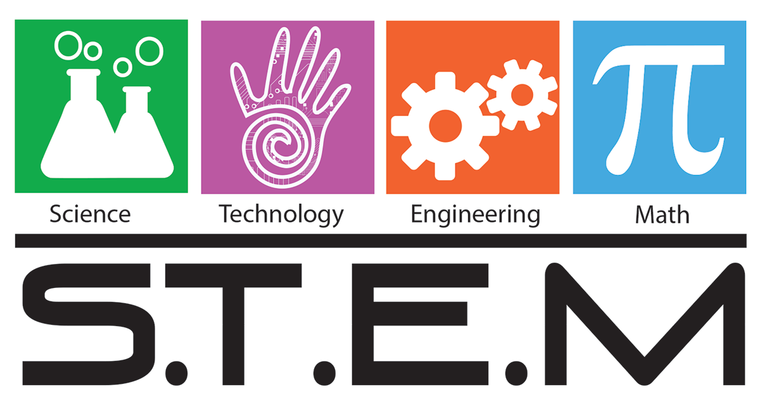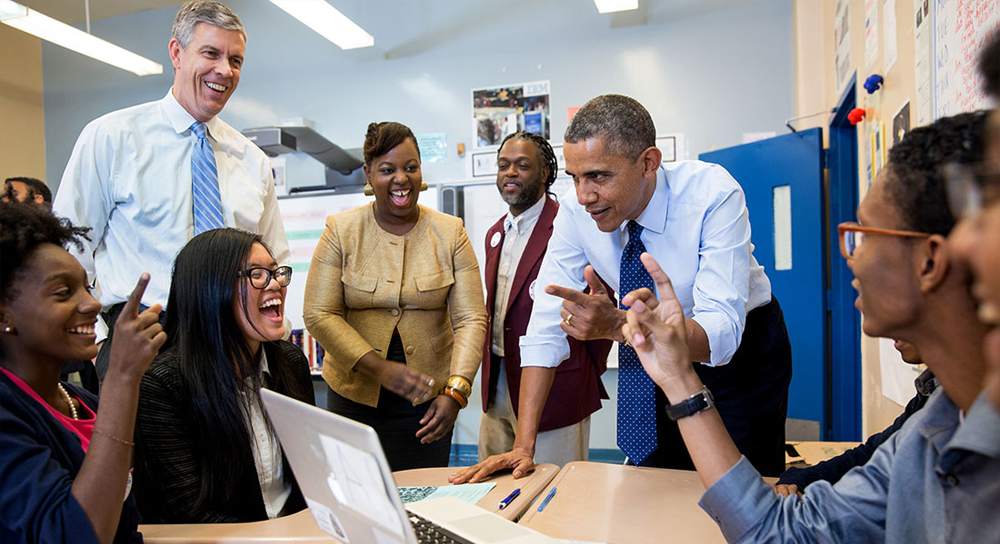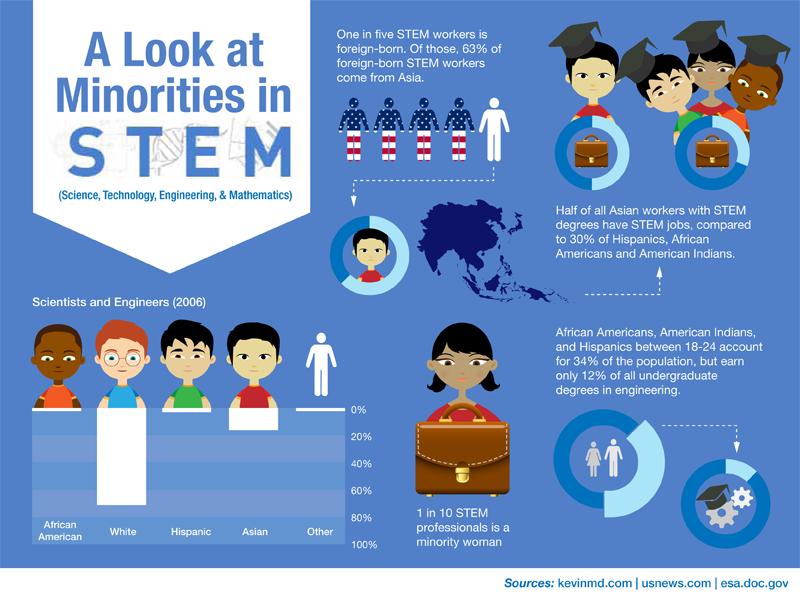|
Science, Technology, Engineering and Math (STEM)
“Science is more than a school subject, or the periodic table, or the properties of waves. It is an approach to the world, a critical way to understand and explore and engage with the world, and then have the capacity to change that world..." — President Barack Obama, March 23, 2015 |
The United States has developed as a global leader, in large part, through the genius and hard work of its scientists, engineers, and innovators. In a world that’s becoming increasingly complex, where success is driven not only by what you know, but by what you can do with what you know, it’s more important than ever for our youth to be equipped with the knowledge and skills to solve tough problems, gather and evaluate evidence, and make sense of information. These are the types of skills that students learn by studying science, technology, engineering, and math—subjects collectively known as STEM.
Yet today, few American students pursue expertise in STEM fields—and we have an inadequate pipeline of teachers, innovators, leaders and entrepreneurs skilled in those subjects. And even fewer minorities in STEM fields.
Yet today, few American students pursue expertise in STEM fields—and we have an inadequate pipeline of teachers, innovators, leaders and entrepreneurs skilled in those subjects. And even fewer minorities in STEM fields.
MiSTEM:
|
The Massachusetts Institute of Technology had its first African-American graduate, Robert R. Taylor, in 1892. It was only 25 years later, in 1917, that the university gave its first civil engineering diploma to an African-American. For quite a while throughout history, engineering was almost entirely the domain of white men. Although Caucasian males still dominate the profession in the U.S. (only 5 percent of engineers are African-American, only 15 percent are women of any race), it's important to recognize the significant legacies that black men and women have created in the field, and the vast opportunities that still exist. For more on Famous Black Engineers Throughout History, check out.. http://science.howstuffworks.com/engineering/structural/famous-black-engineers.htm |




